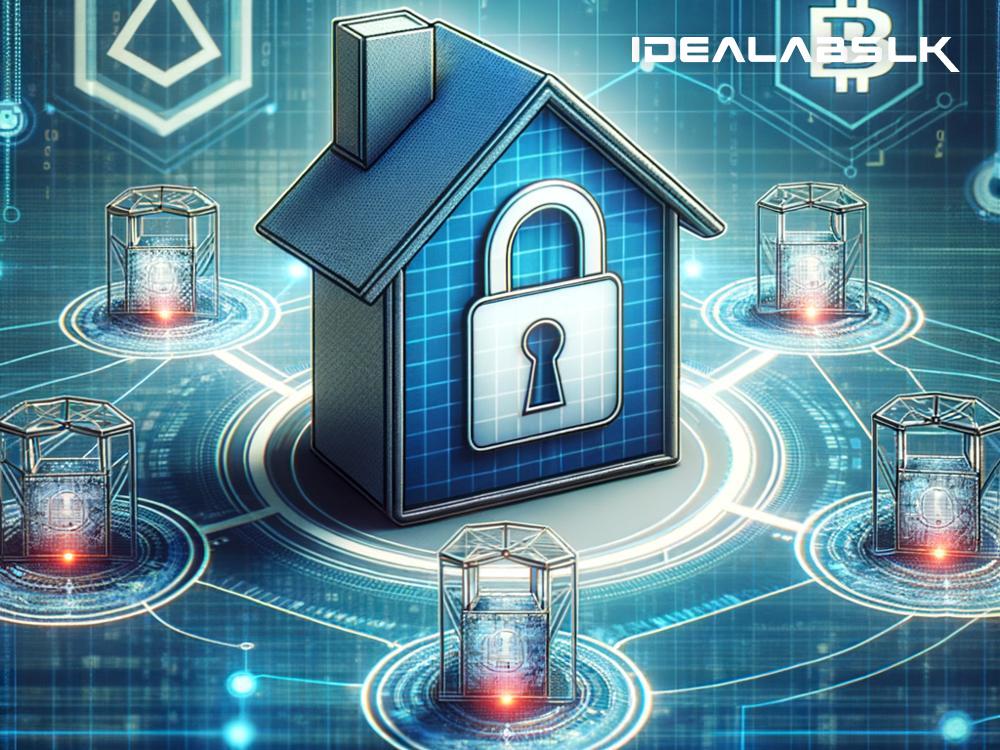How Blockchain Protects Real Estate Data Privacy: A Simple Guide
In recent years, blockchain technology has emerged as a shining beacon of security in the digital age, with promises of transforming numerous industries. Among these, the real estate sector stands poised to benefit significantly, particularly in the realm of data privacy. But how exactly does blockchain offer protection in this context? Let's break it down into simple terms.
What is Blockchain?
First things first, let's understand what blockchain is. Imagine a digital ledger that records transactions across multiple computers so that each entry is secure and unchangeable. This ledger isn't owned by a single entity but is distributed across a network, making tampering by any party incredibly hard. Each block of data is linked to the previous one, creating a chain – hence the name, blockchain.
The Privacy Problem in Real Estate
Real estate transactions involve a ton of paperwork and sensitive data, including personal details of buyers and sellers, financial information, property details, and more. Traditionally, this data has been managed by various intermediaries like real estate agents, banks, and lawyers, each handling different parts of the information. This fragmentation not only makes the process cumbersome but also raises significant privacy concerns. Data can be lost, mishandled, or even deliberately stolen.
Enter Blockchain
Blockchain technology offers a radical solution to these privacy woes through its inherent design. Here's how:
Decentralization
Because blockchain is not centralized but distributed across a network, there is no single point of failure. This means that for someone to tamper with the data, they would need to alter every copy of the ledger across all computers simultaneously - a task that is practically impossible.
Encryption
Data on the blockchain is encrypted, meaning it's converted into a secure code. Only those with the right 'key' can access the information in its readable form. This feature adds a layer of security that traditional systems struggle to match.
Permissioned Access
In the realm of real estate, not every piece of information should be accessible to everyone. Blockchain allows for the creation of permissioned networks where access to data is highly controlled. Only verified and authorized individuals can view or add data, ensuring that sensitive information remains confidential.
Transparency and Traceability
One might wonder, if the data is so secure, how do we ensure transparency? Blockchain tackles this by making the history of transactions fully transparent and easily traceable for permitted users. This means that while personal details remain protected, the authenticity of property records, for example, can be verified by all parties involved, reducing the possibility of fraud.
Smart Contracts
Smart contracts are self-executing contracts with the terms of the agreement directly written into code. These contracts automatically enforce and execute the terms of agreement based on predefined rules. In the real estate context, smart contracts can revolutionize how transactions are conducted, significantly reducing the need for intermediaries, thus cutting down opportunities for data breaches.
Real-World Impact
The adoption of blockchain in real estate is still in its early stages but shows promising signs. Several startups and some governments are experimenting with blockchain for land registries, property listings, and transactions. Countries like Sweden and the Republic of Georgia have been pioneers in testing blockchain for their land registry systems. By securing property records on the blockchain, they aim to enhance security, reduce fraud, and improve the efficiency of the real estate market.
The Road Ahead
While the potential of blockchain to secure real estate data is immense, widespread adoption will require overcoming significant hurdles. Regulatory challenges, the digital divide, and the need for a robust IT infrastructure are just a few. However, as technology evolves and stakeholders recognize the undeniable benefits, blockchain could soon become a fundamental part of how real estate transactions are conducted globally, offering unprecedented levels of data privacy and security.
In conclusion, blockchain presents a novel approach to addressing age-old privacy concerns in the real estate sector. By leveraging decentralization, encryption, permissioned access, and smart contracts, it ensures that sensitive information is protected while streamlining transactions. The journey towards full adoption will be gradual, but the potential impact on data privacy and the overall integrity of the real estate market is profound. As with all technological revolutions, the future seems bright, and in this case, secure.

